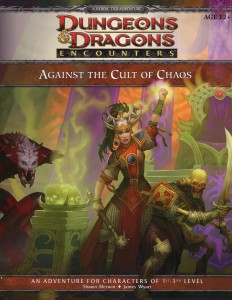On Friday we comb through our extensive archives to find an older article that we feel deserves another look. From December 7, 2009, Dungeon’s Master once again presents: Always Train Your Worst Skills.
Imagine you have an attack score of +15. Your opponent, a savage brute, has an AC of 20 and his companions all have ACs between 10-15. Does this fight even interest you? You’d hit with almost every attack. It might be ok if this was a rare, one-off situation, but imagine that this was how combat shaped up every single time. Personally, I’d lose interest.
Yet this is exactly what’s happening during skill challenges at gaming tables everywhere. We’re so concerned with being really, really good at a couple of skills that when it comes time to use them we are almost guaranteed automatic success. Using Stealth to move undetected or using Athletics to climb any wall under any circumstance can be very cool and a lot of fun, but training the skills we’re already good at just makes using those skills a bore.

